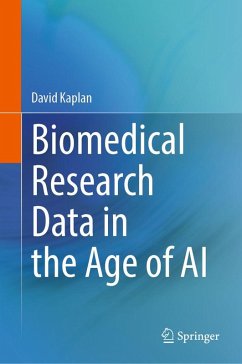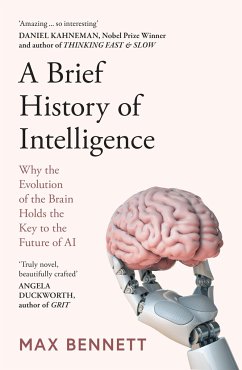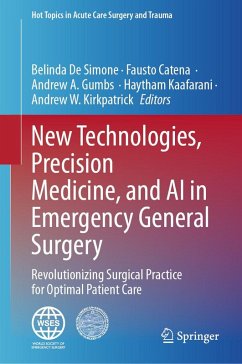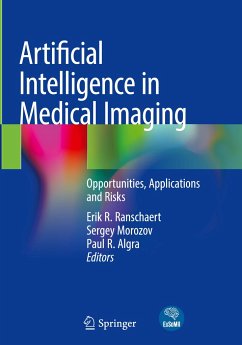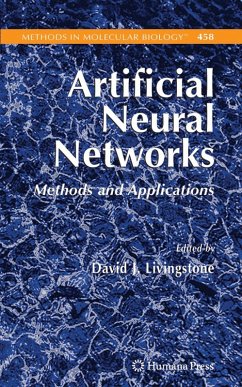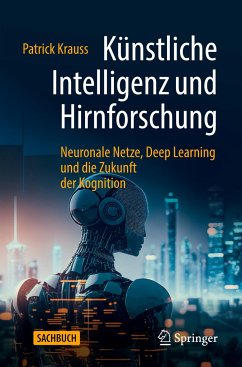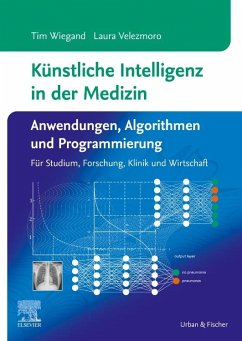
Artificial Intelligence in Healthcare and Biomedical Visualization

PAYBACK Punkte
65 °P sammeln!
This book opens with a broad survey of how AI and biomedical visualization are reshaping medicine today. It defines the global challenges workforce shortages, exploding data volumes, and rising costs that make AI s intervention critical, and introduces the core technologies (machine learning, virtual reality, telemedicine) driving innovation across diagnostic, educational, and delivery systems. By framing these advances within real world pressures, the introduction establishes why a holistic, interdisciplinary treatment of AI s role in healthcare is both timely and essential.Delving deeper, th...
This book opens with a broad survey of how AI and biomedical visualization are reshaping medicine today. It defines the global challenges workforce shortages, exploding data volumes, and rising costs that make AI s intervention critical, and introduces the core technologies (machine learning, virtual reality, telemedicine) driving innovation across diagnostic, educational, and delivery systems. By framing these advances within real world pressures, the introduction establishes why a holistic, interdisciplinary treatment of AI s role in healthcare is both timely and essential.
Delving deeper, the text is organized into ten thematically linked chapters. It begins by charting the anatomy of medical data and the visualization tools that make complex information interpretable, then moves into machine learning approaches for imaging and AI driven diagnostic platforms. Subsequent chapters explore immersive virtual reality simulations for clinician training, the ethical and regulatory imperatives of AI adoption, and the evolution of AI in medical education and surgical simulation. The book also examines frontier applications autonomous health systems in spaceflight, AI supported care in low resource settings, and strategies for workforce adaptation before concluding with a forward looking synthesis of best practices and future directions.
This volume is crafted for a diverse readership clinicians seeking to integrate AI tools, researchers probing new algorithms, healthcare administrators designing policy, and students building interdisciplinary expertise. By combining case studies, evidence based analyses, and practical guidance, it equips readers to navigate AI s complexities responsibly, optimize clinical workflows, and ultimately improve patient outcomes. Whether you re on the front lines of care or shaping the next generation of medical innovation, this book delivers the insights and frameworks needed to harness AI s transformative potential.
Delving deeper, the text is organized into ten thematically linked chapters. It begins by charting the anatomy of medical data and the visualization tools that make complex information interpretable, then moves into machine learning approaches for imaging and AI driven diagnostic platforms. Subsequent chapters explore immersive virtual reality simulations for clinician training, the ethical and regulatory imperatives of AI adoption, and the evolution of AI in medical education and surgical simulation. The book also examines frontier applications autonomous health systems in spaceflight, AI supported care in low resource settings, and strategies for workforce adaptation before concluding with a forward looking synthesis of best practices and future directions.
This volume is crafted for a diverse readership clinicians seeking to integrate AI tools, researchers probing new algorithms, healthcare administrators designing policy, and students building interdisciplinary expertise. By combining case studies, evidence based analyses, and practical guidance, it equips readers to navigate AI s complexities responsibly, optimize clinical workflows, and ultimately improve patient outcomes. Whether you re on the front lines of care or shaping the next generation of medical innovation, this book delivers the insights and frameworks needed to harness AI s transformative potential.



